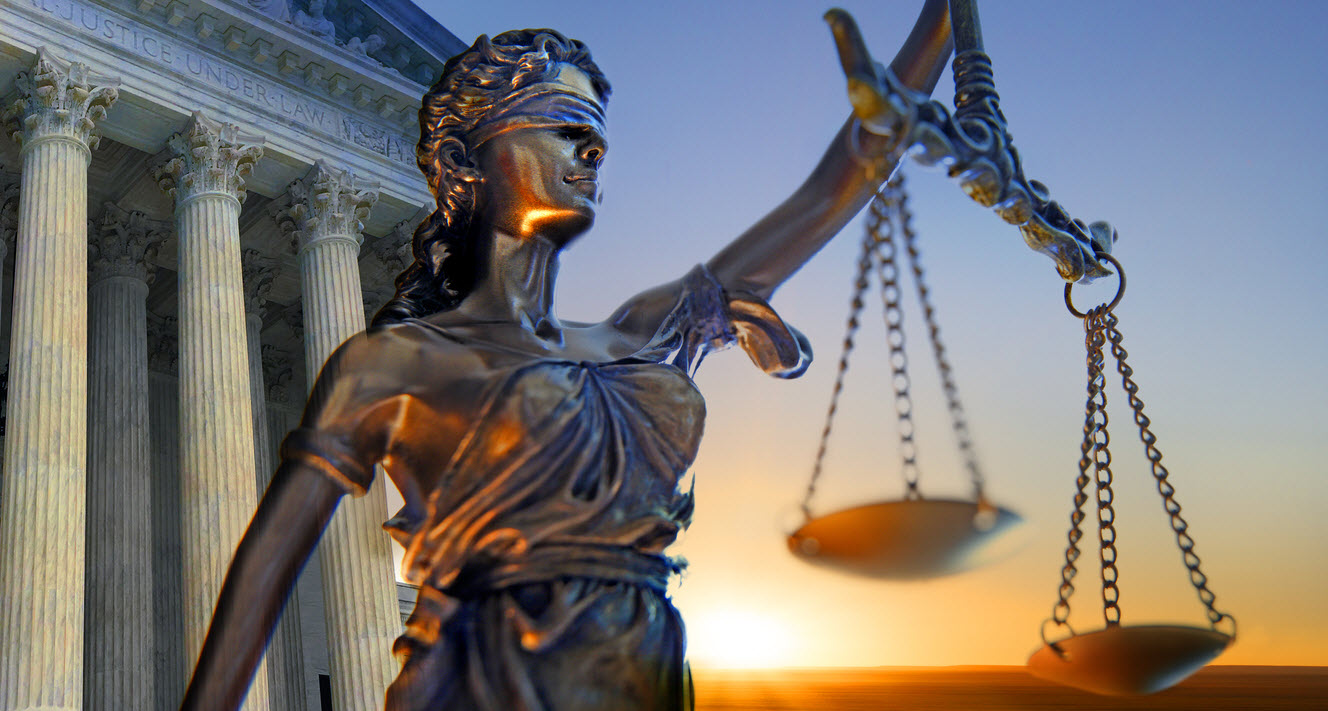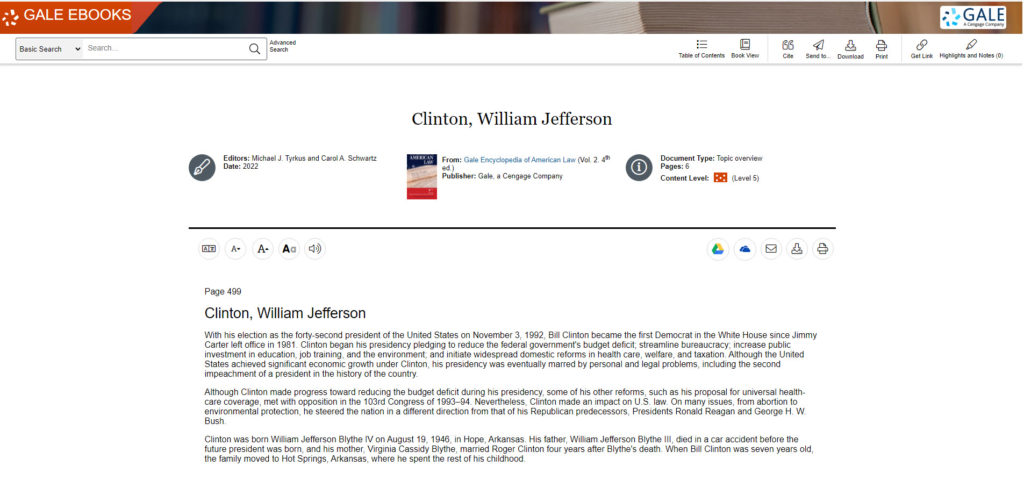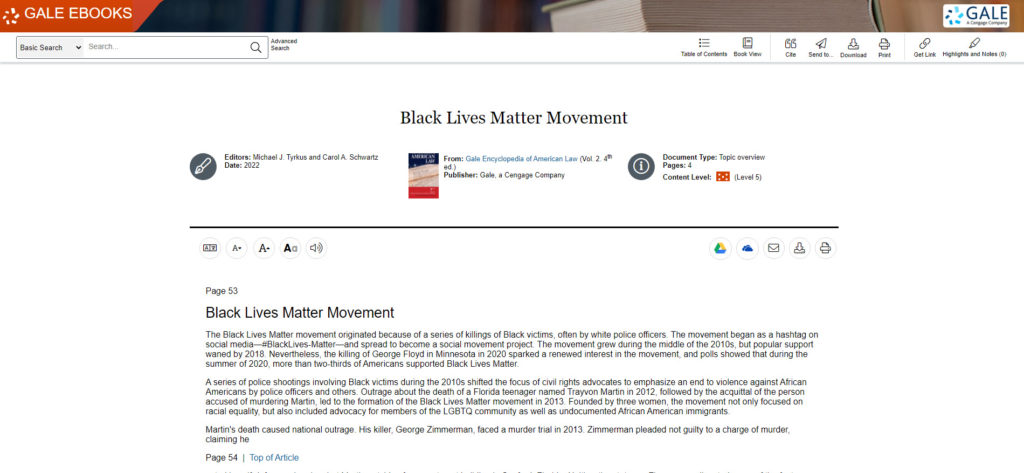| By Matt Cordon |
Those who contributed to the fourth edition of the Gale Encyclopedia of American Law (GEAL) are celebrating its upcoming release. Creating GEAL was unforgettable, given that we were actively writing or revising the entries when the COVID-19 pandemic began in March 2020. The pandemic caused us to delay the completion of our work by several months, and during that period of interruption, new and compelling law-related issues arose, including the civil unrest caused by the death of George Floyd and the election of Joe Biden as president.
Societal changes have always driven the production of new editions of GEAL. I became involved with the title in 2002 when I was asked to serve as an editorial reviewer. The first edition was titled West’s Encyclopedia of American Law (WEAL) and was published in 1998. Even though only four years had passed, the first edition of WEAL didn’t cover information about the later years of Bill Clinton’s presidency; the controversies surrounding the presidential race between George W. Bush and Al Gore; the aftermath of the September 11th attacks; and the consequences of corporate fraud, such as the collapse of Enron, so Gale added it in the upcoming
A longer period separated the publication of the second edition of WEAL and the third edition of what became GEAL. Work on the third edition began in 2008, and many of the new topics and revised entries focused on the aftermath of the Great Recession of the late 2000s. The third edition also featured more coverage of famous women and other underrepresented groups.
The years that followed the release of the third edition of GEAL in 2011 saw the Supreme Court recognize the constitutional rights of same-sex partners to marry (Obergefell v. Hodges), and the LGBTQ community continued to advocate for greater rights in many areas. Immigration issues during the presidencies of Barack Obama and Donald Trump were often the focus of legal study.
We began our review of the third edition’s entries in late 2019. It was immediately apparent that many of the 5,000 entries needed to be updated, and the new edition would need several new entries. The group of us who recommended the new and revised topics had partnered with Gale for years as contributors. In fact, retired law professor Frederick K. Grittner of Mitchell Hamline School of Law has worked as an editorial reviewer on every edition of GEAL.
Some changes were obvious from the beginning, including coverage of Citizens United v. Federal Election Commission, which the Supreme Court decided in 2010. In that case, the court ruled that the First Amendment protects individual campaign expenditures made by corporations and special interest groups, thus prohibiting the government from restricting those expenditures. Later cases further expanded the protection, even as commentators said that the rulings gave those corporations and wealthy donors greater influence over elections. The court decided the case after much of the writing for the third edition had been completed, so it didn’t appear in the final publication. The fourth edition treats the case as one of the major landmark decisions in U.S. history.
Many updates focused on details that had become inaccurate since 2011. For example, administrative agencies often reorganize their departments, especially with leadership changes. The new edition of GEAL accurately describes the organization of those agencies. GEAL also contains many biographies of major figures in law, and many of those figures had achievements that weren’t reflected in the third edition.
The events of 2020 and early 2021 prompted us to revisit some important topics. We had included the Black Lives Matter movement as a topic before the killing of George Floyd brought racial injustice to the forefront of the American consciousness. In early 2021, we substantially rewrote the entry to provide a more transparent description of the movement. Similarly, we needed to update entries related to the final months of Trump’s presidency and Biden’s election. Thus, we revised entries about Biden, the Democratic Party, the Electoral College, and impeachment.
Of course, COVID-19 was a topic we needed to address. I had the privilege of writing the entry, which was more than 3,500 words. The topic presented a challenge because everything related to the pandemic changed so frequently. As I wrote it in early 2021, vaccines had been approved but had yet to be widely administered. The numbers of those infected and the numbers of deaths had spiked, and we remained uncertain about what the future would hold.
Part of the joy of working on GEAL during the past two decades has been the challenge of trying to reflect the state of law without knowing what the future will hold. I’m proud of our work, and I sincerely hope readers benefit from our efforts to produce the fourth edition.
Thanks to the wonderful staff at Gale—Shirelle Phelps, Carol Schwartz, and others—for the years of opportunities to work on these titles.

Meet the Author
Matt Cordon serves as director of the legal writing program and professor of law at Baylor Law School, where he teaches introductory and advanced courses in legal research and writing. In addition to freelance writing, he practices and teaches martial arts, having earned black belts in both Brazilian jiujitsu and tae kwon do.



